Written by Angelina Engalla (UC Berkeley), winner of The Californian Abroad Blog Contest (2024)
In transit to Paris, while waiting at the check-in counter at Hong Kong International Airport, I chatted with another traveler on my flight. We covered the typical airport small talk: China’s unparalleled innovation, the corruption of Philippine politics, Algeria’s unique charm, and the American Study Abroad experience. I asked the friendly French-Algerian man, who labeled himself a ‘citizen of the world’, what advice he had for me – a freshly turned 20-year-old about to embark on four months in France equipped with the French vocabulary of a toddler.
And I remember his response exactly: “Don’t hang out with Americans. Make friends with French people.”
In retrospect, his words were the first indication that my semester in Paris would be unlike any academic or cultural experience I had ever had, especially after two-plus years of studying at UC Berkeley. I had become accustomed to the liberal-loving lifestyle of the Bay Area; however, the advice from my new traveler friend inferred that I may need to reevaluate my American tendencies. I just might have to be open to vivre à la française.
To state the obvious changes: the language shifted from English to French, the US Dollar converted to the Euro, the BART turned into the Metro, the drinking age lowered from 21 to 18, the government gained a prime minister, and all the sweatpants simply disappeared.
As the first few weeks rolled by, I began to notice more and more of my everyday life required a Parisian reconfiguration—grocery shopping became a consultation of connoisseurs, and checking the city’s unceasing strike schedule followed just after the daily weather forecast.
After four months of living and learning in Paris, I was left with a variety of cultural, political, and social observations that helped me not only better understand French society but also gain a new sense of self that I now carry with me no matter what corner of the globe I may find myself in.
Here are the fresh perspectives I learned in Paris.
Cultural Perspective: Take Your Time
One cultural difference among many that I quickly learned did not translate was the American mindset of ‘time equals money.’
In the US, everything is adjusted for convenience and efficiency. Ordering and eating your breakfast sandwich on your way to work is normal. In France, eating while walking means you aren’t taking your time to thoroughly enjoy the food that someone prepared for you. My friends and I learned this lesson the hard way when a Frenchman scolded us in the street.
France’s title as the ‘land of gastronomy’ (according to one of my professors) makes more sense once you understand that every aspect of the food you consume, from the ingredients to the preparation to your delight, is valued as a form of art created for your unabashed pleasure.

This is why my one-stop grocery run at Berkeley Bowl shifted to a stop at the farmer’s market for fresh produce, another stop at the boulangerie for the good baguettes, another at the fromagerie for the best cheese, and one more at the boucherie for quality meats. After all those stops, I finally went to the supermarket for everything else.
While the multi-stop errand journey sounds much less convenient than is standard in the US, tasks like buying fresh food for the next few days and getting my morning coffee slowly turned into nourishing rituals instead of an annoying box to check off my to-do list. The attitude that shamelessly commits time for pleasure is manifested in France’s renowned dedication to work-life balance.
Taking what initially seemed like a leisurely lunch break soon became an everyday expectation and, soon after that, a fundamental right worth fighting for—and if anyone knows how to protest for their rights, it’s the Parisians. And that leads me to my next observation.
Political Perspective: No One Protests Like a Parisian
Through my program, Social Justice and Activism, the excursions, and talks with guest speakers, I learned about how France’s history, culture, and language of social justice and activism have evolved into pillars of French society.
You see, I come from UC Berkeley, the campus where the Free Speech Movement was born in America, and I was eager to live in and learn from a city that averages more than 2,000 duly declared demonstrations year over year. The most intriguing aspect of France’s protest culture was how the history of French social movements, from the French Revolution to May ’68 and Des Gilets Juanes, continues to echo into contemporary times. It seems there is a strong collective national memory of activism that results in an impressively organized and effective process of protesting today.
It would take a substantial amount of research to fully understand the intricacies of this country’s habit of striking since it involves a delicate relationship between politics, violence, and freedom; however, France’s centuries-long history of revolution has paved the way for its people to deeply understand the power of collective action in effecting tangible change.

While the US has an impressive history of social activism in the Civil Rights Movement, #MeToo, and Black Lives Matter, the culture, frequency, and efficacy of protests in the US simply do not compare to those in France. Even after studying social justice in both contexts and countries, I have yet to find a satisfying answer to what makes French and American protest cultures so different and what we can learn from each other.
Discussing the differences led to some of the most fascinating conversations, so my next observation is about the Parisian social scene.
Social Perspective: Learn from Locals
I suggest a slightly modified version of the advice I received from the traveler I met before my semester started. I wouldn’t say not to hang out with the Americans because I did, and I ended up with three close friends with whom I now share an incredible adventure.
I would, however, echo the second half of his advice and tell you to make friends with French people.
As exciting as exploring a new city on your own for the few short months of your study abroad program is, nothing compares to learning about a place from the people who live there.
I was lucky enough to melt the frosty exterior that Parisians tend to wrap themselves in and ended up with a few local friends. Soon enough, we were engaging in French-American interrelations at our weekly billiards session at Le Bap, music trivia night at The Highlander, and happy hour at Les Anemones. Even though you may face a language barrier, I’m here to tell you that Google Translate works perfectly fine in the club. We would discuss the nuances of slang in our home languages, teach each other card games, and discover new places together in a city that is everything but boring.
My time in France gave me a new social perspective on the similarities and differences between the US and France, as well as time to reflect on what matters from each.
On one of the last nights before my friends and I would part ways for the summer, we sat sipping our favorite drinks and reflecting on the past four months. The conversation started with all the ways we thought we’d changed and it ended up with me asking everyone what they thought had stayed the same. Each person had different answers, ranging from our individual academic interests to the relationships we will always cherish. I said (less eloquently then than I am now) that my passion for art and culture, my insatiable curiosity for our ever-changing world, and my relentless urge to continually challenge myself—the values that drew me to study abroad in the first place—have stayed integral parts of my identity and continue to grow in importance.
At the end of my program, I would tell anyone interested in studying abroad in France to go to the connoisseurs, eat closely, get intentionally lost, make friends with local French people, become a regular somewhere, and lastly (probably most importantly), pay attention to the parts of you that stay the same. At the end of your program, the parts that return home with you expose you to what you hold close to your core, regardless of where you go in the world.
Learn more about self-discovery on study abroad
- Studying abroad in France helped this Iranian-American become an anthropologist.
- International education can help you embrace the complexities of all identities.



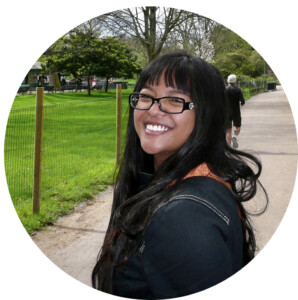
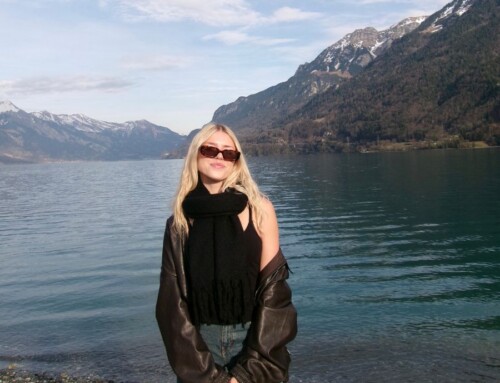
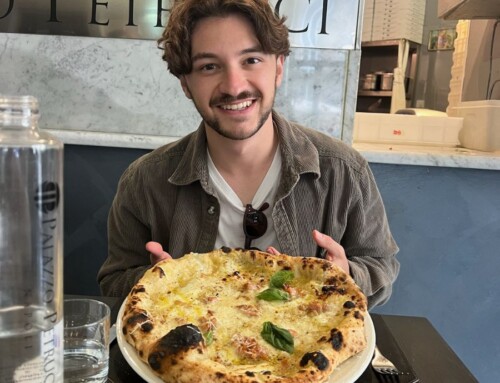
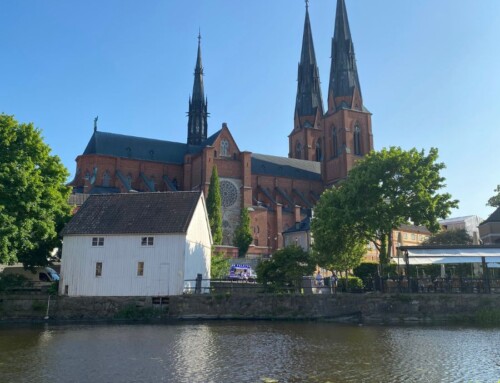

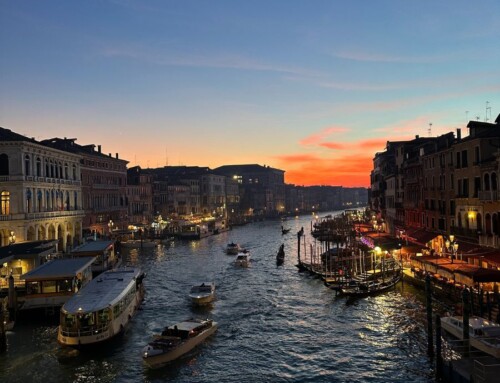
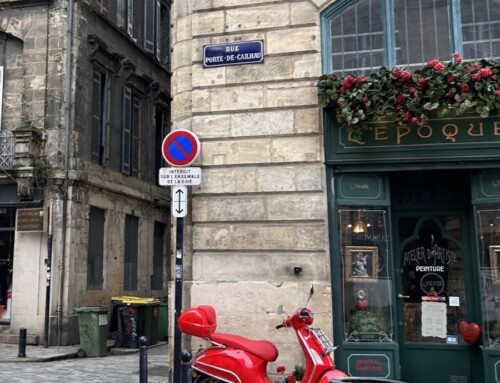
Leave A Comment